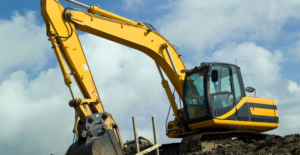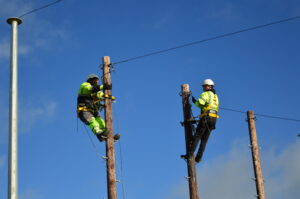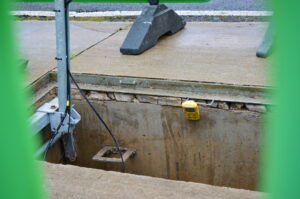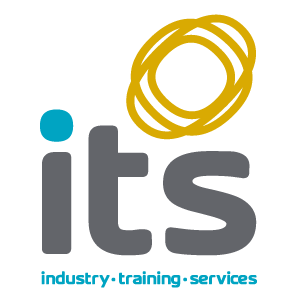At Industry Training Services, we offer a variety of confined spaces training depending on the level of risk, covering every potential hazard. We have four different confined space practical areas with different offerings/configurations that provide practical training that’s specific to your needs. We understand it can be confusing figuring out which type of confined spaces training it is that you need, so we have covered each type of training in this blog so that you can better understand which training is the right one for you. Although we offer the following structured, accredited confined spaces training courses, we also offer bespoke courses, not only for those in the construction industry- we have also administered tailored confined spaces training for businesses such as Moy Park, Dunbia, Aurivo, Lac Patrick, and Ready Egg. Additionally, we offer these specialised courses remotely, across the island of Ireland (Dublin, Cork, Meath, etc) to train employees onsite.
“Good location, great facilities & equipment, all in great working condition. There was a great practical side to this course (confined spaces) with realistic situations that are relevant to our workplace. Really enjoyed the new shipping container exercise, a great addition to the training.”
The Dunbia Team
Confined spaces are a common hazard in the construction industry. Individuals entering these zones must be appropriately trained according to the level of risk, as required by law. Dangerous gases and toxic chemicals, as well as a lack of oxygen, are common risks. Every year, there are a number of fatalities and serious wounds as a result of confined spaces therefore It is critical to raise awareness and receive practical training.
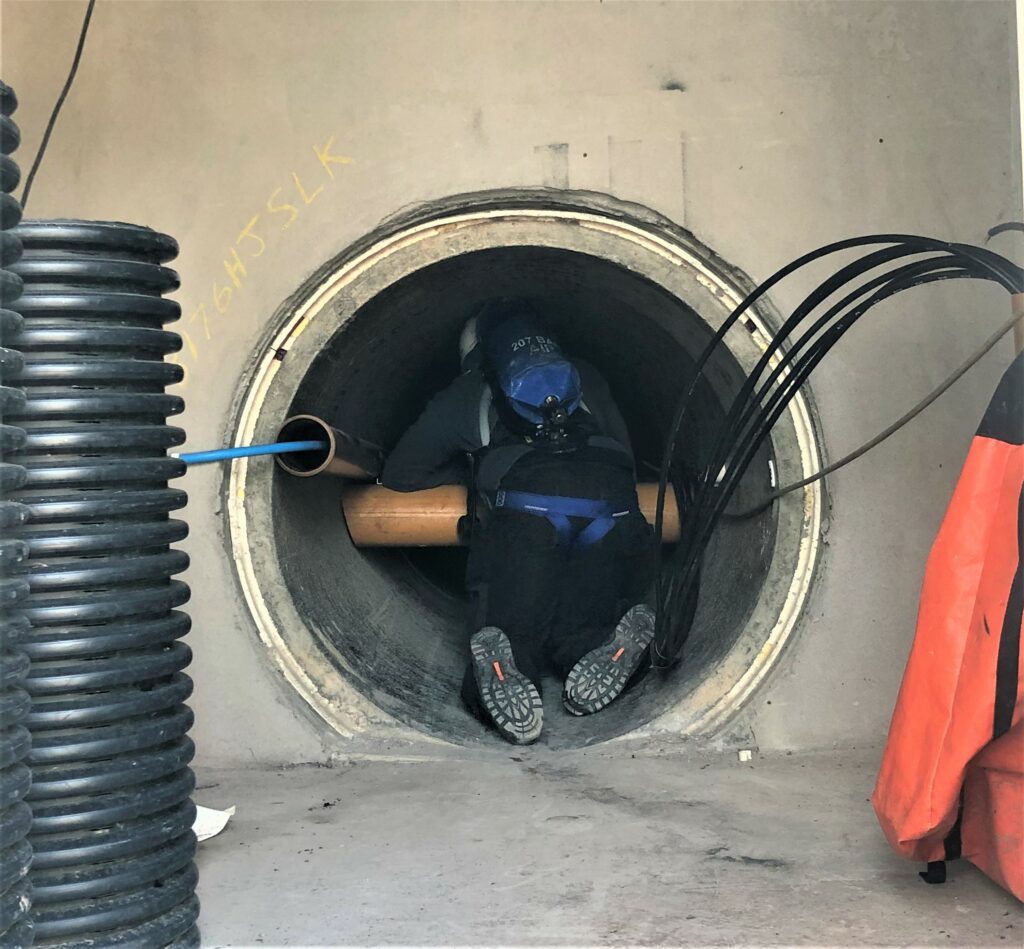
So, what types of confined spaces training do we offer?
Confined Spaces, Safe Entry, Escape Breathing Apparatus, and Self Rescue
Duration: 1 Day
This confined spaces, safe entry, escape breathing apparatus and self-rescue course is primarily for practical users that are required to enter locations that are considerably confined and where the working environment is potentially dangerous.
This course aims to ensure that delegates entering such settings are aware of the legal requirements, the necessity of risk assessments, and safe work methods, as well as how to put these into practice. This includes knowing how to utilise the right tools to allow for safe access upon entry.
For more information: https://www.industrytrainingservices.com/course/confined-spaces-managers/
Confined Spaces, Safe Entry and Full Breathing Apparatus
Duration: 2 Days
This Confined Spaces, Safe Entry training is more intensive than the one-day course and is designed for delegates that spend a significant amount of time in substantially enclosed spaces and work in potentially hazardous environments.
The aim of this course is to identify safe working procedures when working in confined spaces, as well as granting delegates the knowledge and ability to guarantee that the confined space is entered safely and that the job is properly supervised.
For more information: https://www.industrytrainingservices.com/course/confined-spaces-safe-entry-and-full-breathing-apparatus-2-days/
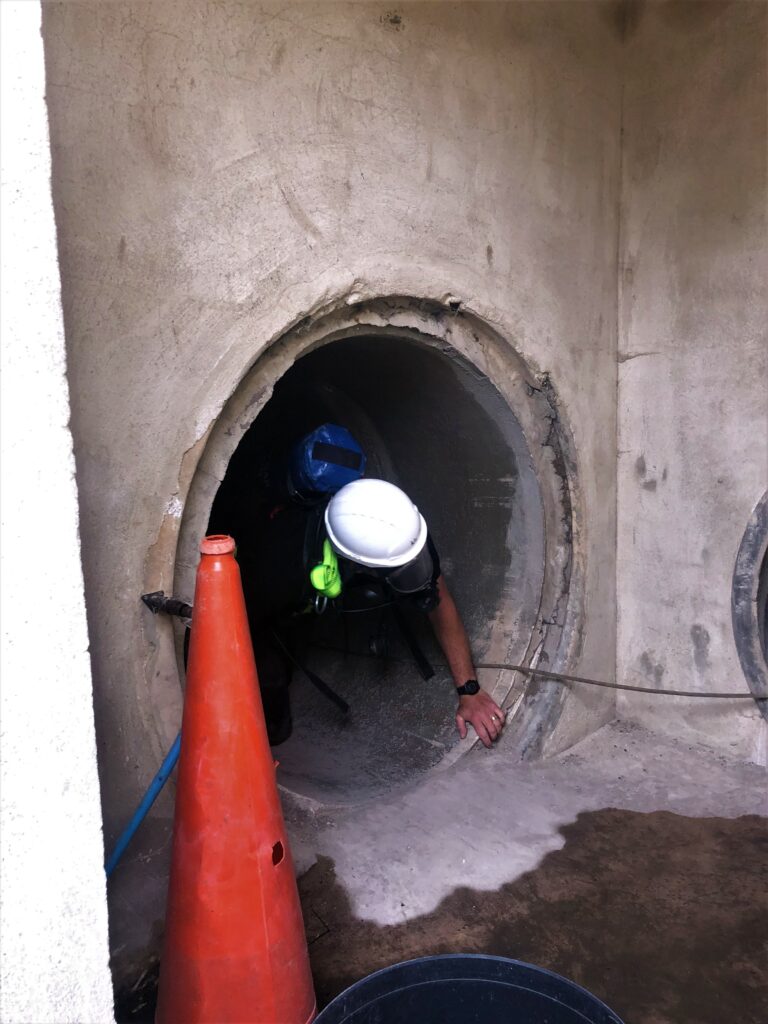
CABWI Level 2 Award, Working in Low, Medium or High Risk Confined Spaces
Duration: 1-3 Days
Low Risk (1 Day)– The CABWI Level 2 Award in Working in Low Risk Confined Spaces allows learners to demonstrate the skills and knowledge required by those who need to work in low-risk confined spaces as part of their role.
This competency-based certification provides the fundamental knowledge and skills necessary to work in low-risk confined spaces.
A written knowledge test and a practical skills test are used to evaluate the unit in controlled conditions.
https://www.cabwi.co.uk/qualifications/individual?id=179
Medium Risk (2 Days)– The CABWI Level 2 Award in Working in Medium Risk Confined Spaces allows learners to demonstrate the skills and knowledge required by those who need to work in medium risk confined spaces as part of their job role.
This competency-based certification provides the fundamental knowledge and practical abilities needed to work in confined spaces with medium risk.
A written knowledge test and a practical skills test are used to assess the unit in controlled conditions.
https://www.cabwi.co.uk/qualifications/individual?id=180
High Risk (3 Days)– This course is designed for candidates that are involved in confined space entry with full duration breathing apparatus for high-risk confined spaces as described in the national occupational standards for water & non-water confined space entries.
This competency-based certification covers the fundamental knowledge and abilities needed to work in high-risk confined spaces.
https://www.cabwi.co.uk/qualifications/individual?id=181
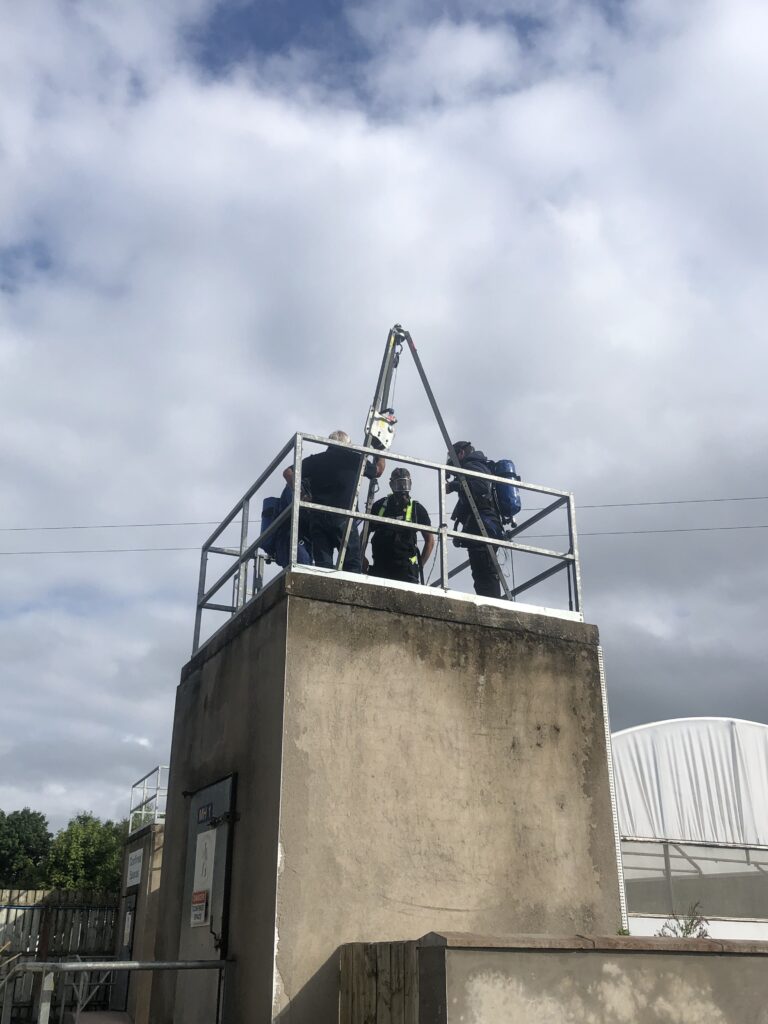
CABWI Level 3 Award Emergency Rescue and Recovery of Casualties from Confined Spaces
Duration: 1 Day
Prerequisite: Must have completed the CABWI Level 2 High Risk Confined Spaces Training
The CABWI Level 3 Award in Emergency Rescue and Recovery of Casualties from Confined Spaces allows learners to demonstrate the skills and knowledge required by those whose job role requires them to act as part of a confined space rescue team.
This competency-based qualification includes the fundamental knowledge and practical techniques needed to participate in a confined space rescue operation.
For more information: https://www.industrytrainingservices.com/course/cabwi-level-3-award-emergency-rescue-and-recovery-of-casualties-from-confined-spaces/
Confined Spaces for Managers
Duration: 1 Day
The confined spaces for managers course is suitable for individuals who manage, plan and supervise confined space operations, as well as those that are responsible for writing a safe system of work plan for such operations. The candidate could be a supervisor, manager, or team leader for example. This course is theory-based and does not offer a practical confined space task.
This course allows you to understand and recognise safe working practices when working in confined spaces, to be familiar with relevant legislation and codes of practice, and to be able to create a safe system of work plan (risk assessment/method statement/rescue plan/permit system).
For more information: https://www.industrytrainingservices.com/course/confined-spaces-managers/
If you want to make a booking for any of these courses and are having issues, check out our free guide on how to book a course online with us.

